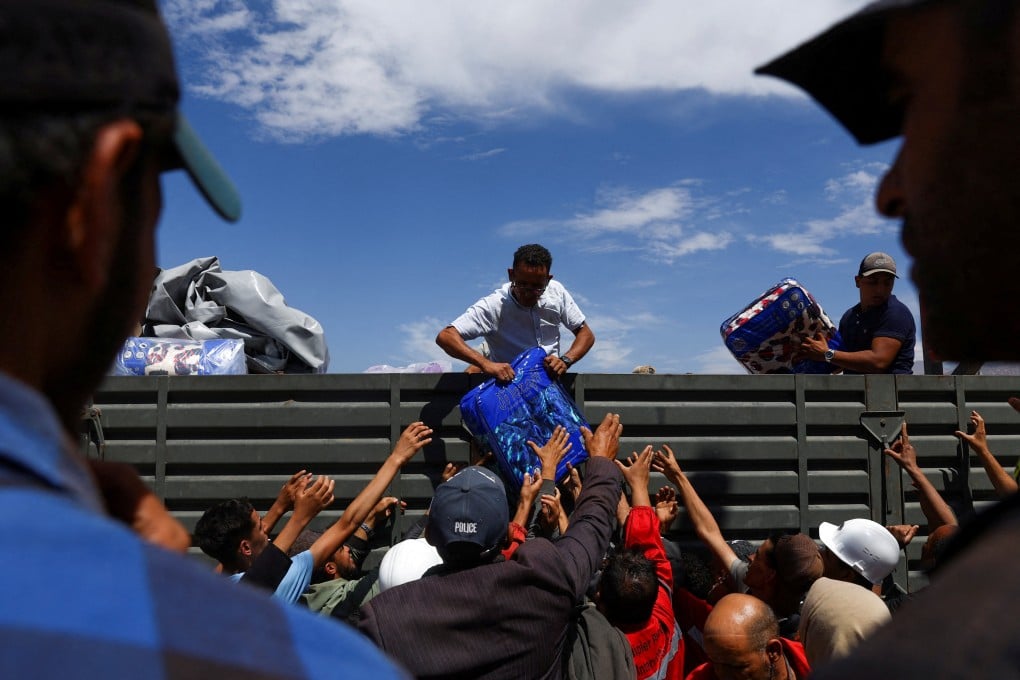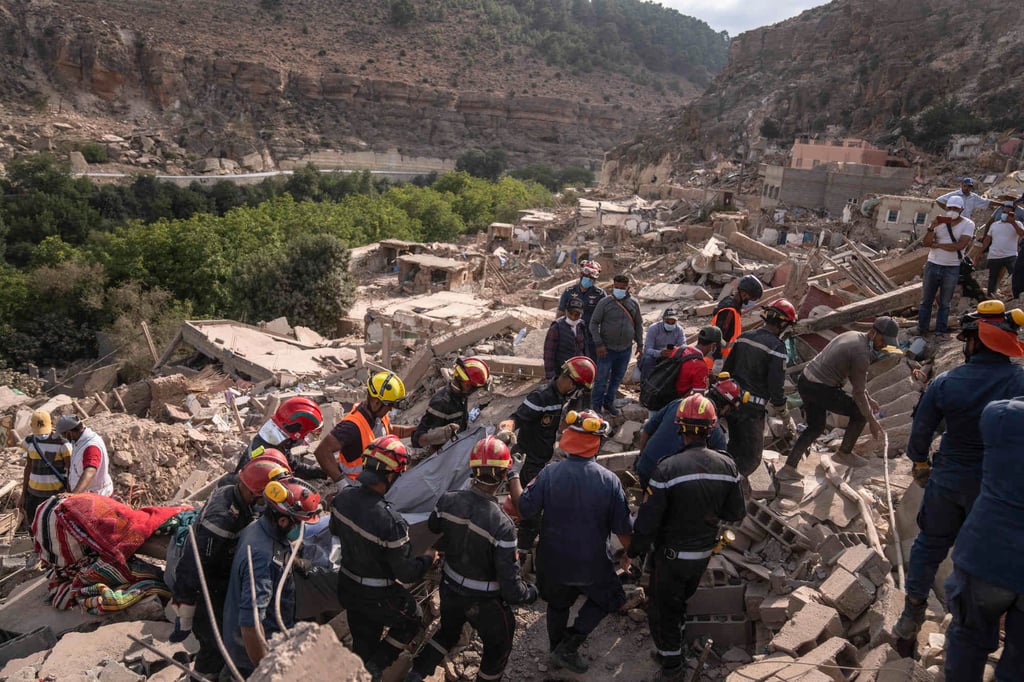What’s delaying aid after Morocco and Libya natural disasters? Politics
- Catastrophic floods ravaged eastern Libya this week after a magnitude 6.8 earthquake hit Morocco last Friday
- The responses to both disasters show the difficulty of separating humanitarian aid from political considerations

Devastated communities have waited days for help, often digging out and burying their dead with little to no assistance from their governments. Some of the delay can be blamed on destroyed infrastructure. But the bigger roadblock is politics.
Though other governments and aid groups swiftly offered assistance – including rescue and relief teams – help has been snarled by rivalries.
Outside Morocco, there’s bewilderment: despite dozens of international teams ready to mobilise after Friday’s magnitude 6.8 earthquake, the government in Rabat, the capital, has officially accepted assistance from only four nations it deems “friendly” – Qatar, the United Arab Emirates, Spain and Britain – and that acceptance came two days after Friday’s earthquake.

In Morocco, where the 72-hour “golden period” for saving lives has already passed, thousands are complaining that authorities have all but abandoned them, furious at what they say is the government’s lackadaisical response.
The Interior Ministry on Sunday sought to justify its reticence in welcoming aid, saying a “lack of coordination would lead to counterproductive results”.